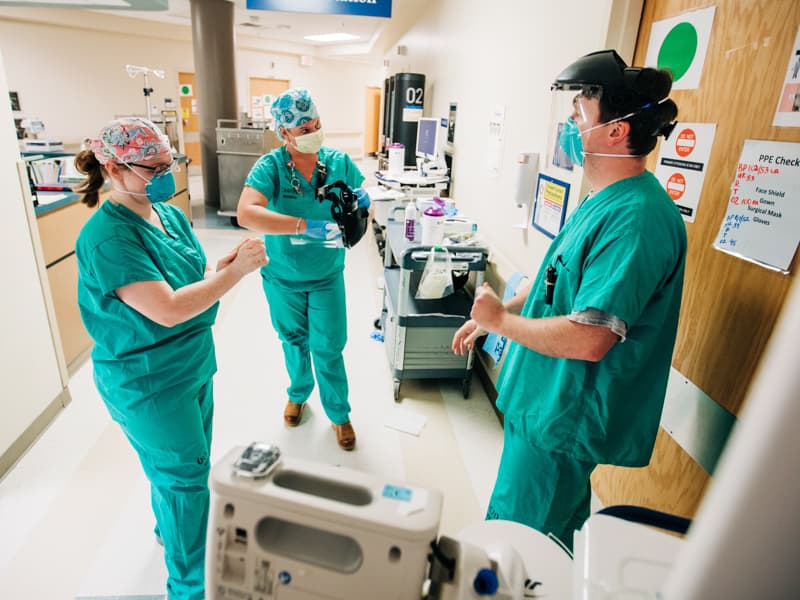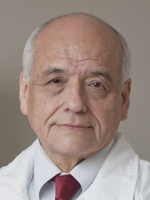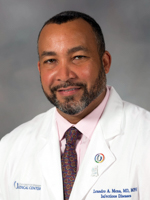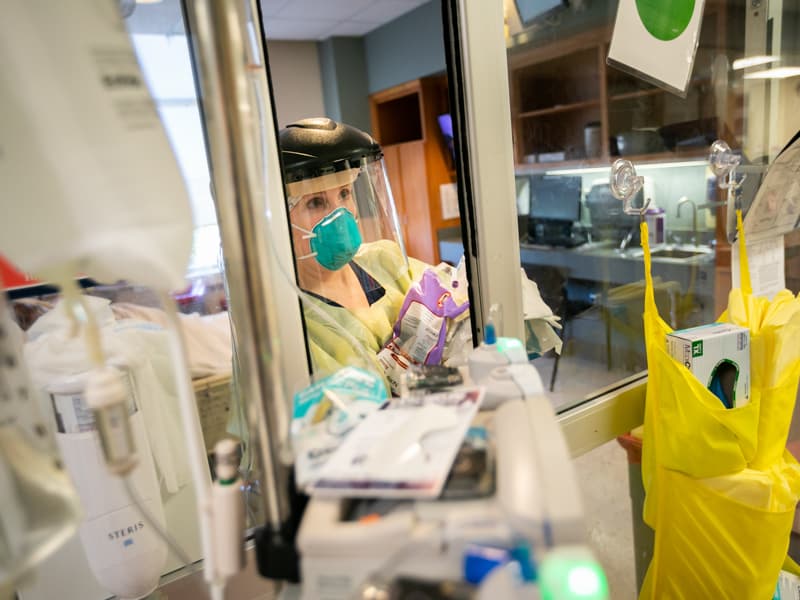UMMC receives $1.6 million for COVID-19 community study

The University of Mississippi Medical Center is receiving more than $1.6 million from a $54 million, two-year Centers for Disease Control and Prevention contract for community-based COVID-19 research.
Led by Wake Forest Baptist Health and management firm Vysnova, the project will address epidemiological and clinical questions about COVID-19 using a multi-site study of patients and health care workers in health systems.
Dr. Adolfo Correa, professor of medicine and director for the Jackson Heart Study, and Dr. Leandro Mena, professor and chair of the Department of Population Health Science, are UMMC’s principal investigators for the study.

“The University of Mississippi Medical Center team is honored and excited to participate as a collaborating site in this important study of the COVID-19 pandemic. This timely project offers a unique opportunity to gain a better understanding of the pandemic in Mississippi,” Correa said.
About 100,000 Mississippians have tested positive for SARS-CoV-2, the virus that causes COVID-19, since March 11. While daily new cases have dropped since summer, the proportion of Mississippians who have tested positive – about three percent – is among the highest in the United States.
The study will estimate COVID-19 prevalence and incidence by geography, age, race and other demographic measures, as well as clinical consequences. Participants will report potential exposures, symptoms and behaviors like mask-wearing through a secure app on their personal device. Some participants may also test for COVID-19 antibodies at home. The study will also look at the effectiveness of personal protective equipment in preventing COVID-19 infection among health care workers.

“By studying who has been exposed and possibly infected, better identifying the timing and circumstances of exposure, and where infection patterns of the COVID-19 are advancing, researchers can help the medical community better understand the pandemic and develop strategies and treatments to contain and possibly eliminate it,” said Mena, a professor in the Department of Medicine’s Division of Infectious Diseases.
Large studies like this benefit from having study sites with unique expertise. Correa said UMMC will be a valuable partner because of its large workforce and patient population and its long-standing work with cohort studies.
“UMMC brings extensive experience in community-based epidemiologic surveillance and research and is home of two major studies, the Jackson Heart Study and the Atherosclerosis Risk in Communities Study,” he said. Additionally, UMMC works with HIV prevention and care services providers across the Jackson area, and has established research programs.
These patient populations may have an outsized risk of becoming severely ill with or dying from COVID-19. The JHS and ARIC participants are mostly older African American adults, a significant number of whom have high blood pressure, diabetes or cardiovascular and renal disease, Correa said. HIV and other immunocompromising conditions might also raise the risk of COVID-19, according to the CDC.

Additionally, Mena has already started publishing on COVID-19’s epidemiological patterns. He is a co-author of twostudies examining trends in counties with significant Black and Latino populations.
In the first study, Mena noted in May that: “While COVID-19 cases did not vary dramatically between more urban and rural counties, COVID-19 deaths were greater in rural and small metro disproportionally Black counties. And most of these rural and small metro disproportionally black counties with increased COVID-19 mortality are in the South.”
Wake Forest, which announced the COVID-19 community research partnership July 23, will also work with Atrium Health, George Washington University, MedStar Health, the University of Maryland, Tulane University and corporate partners to complete the study.
Dr. Thomas Wierzba, professor of infectious diseases at Wake Forest and lead investigator, said of the study’s announcement: “Wake Forest Baptist is honored to be part of this critical effort to study the disease and to make a contribution to what is potentially one of the critical epidemics in the world since the 1918 flu pandemic.”
Learn more about the study here.


